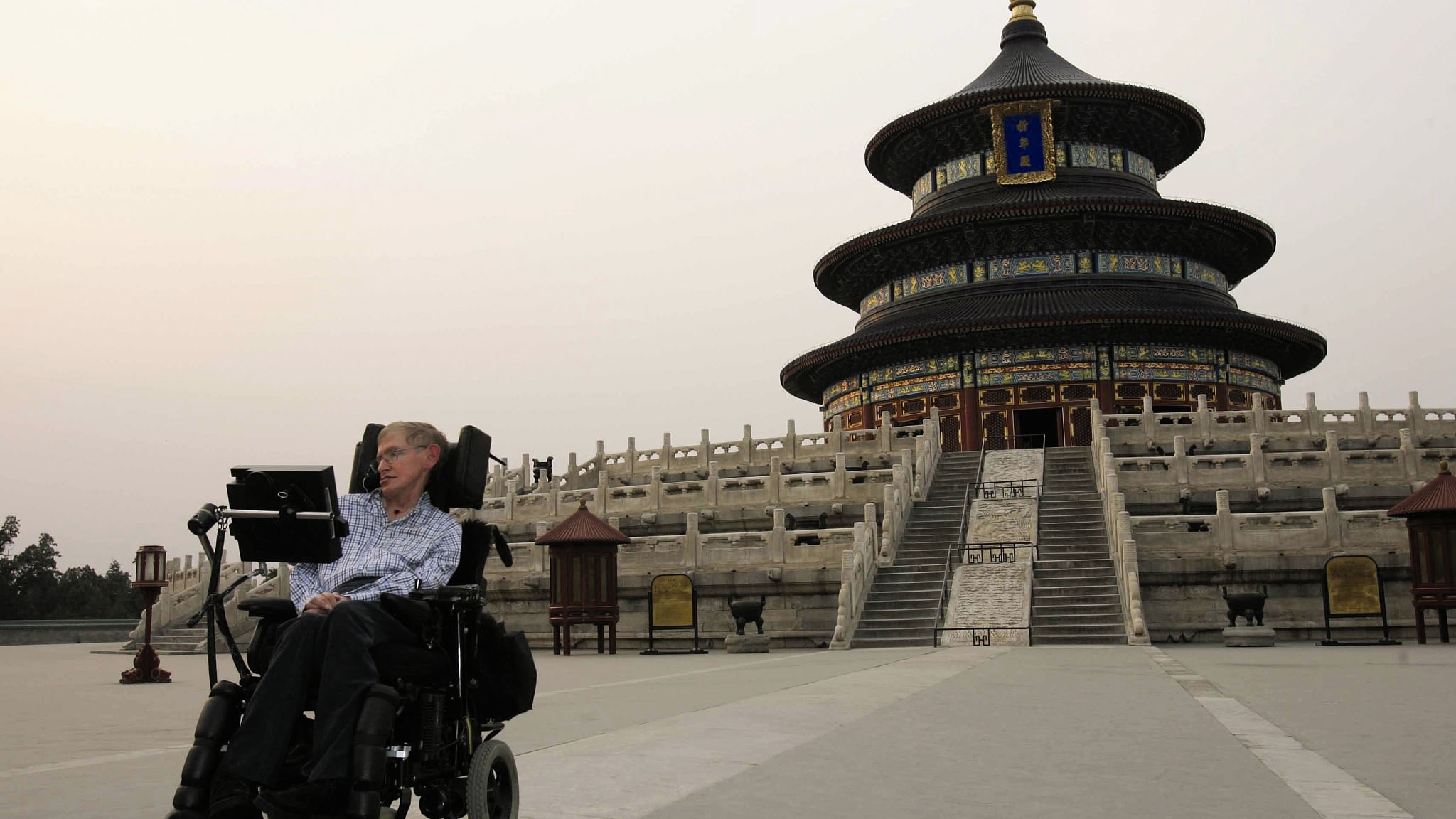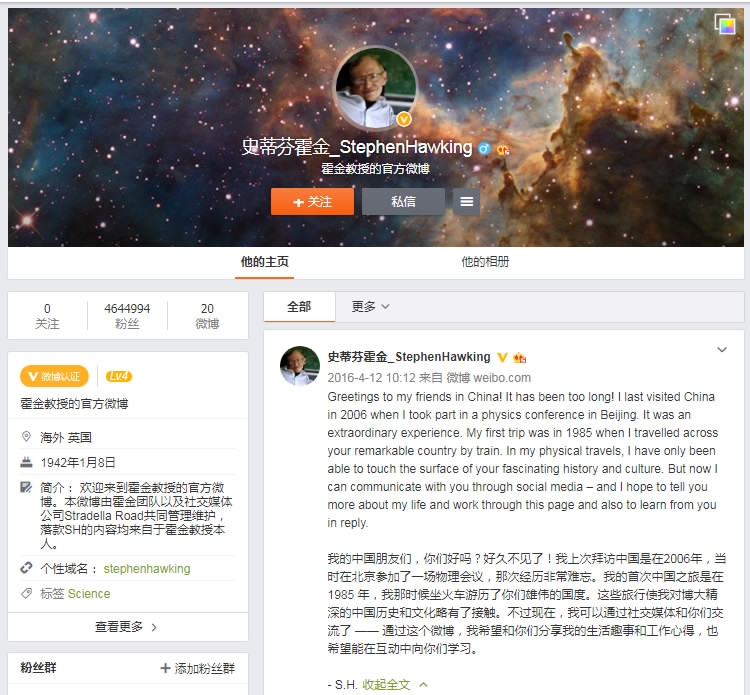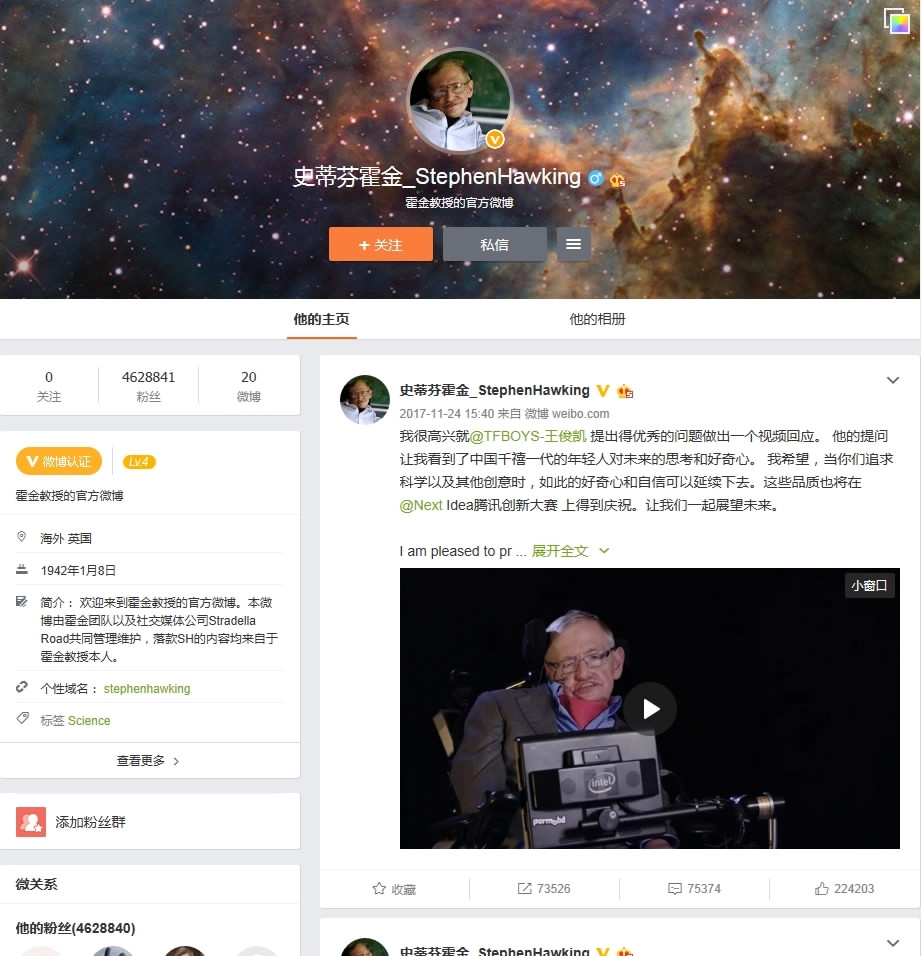
Culture
19:44, 14-Mar-2018
Stephen Hawking: The star forever shining bright on Weibo
CGTN

British theoretical physicist and cosmologist Stephen Hawking was a big name on Chinese social media, having attracted more than 4.6 million followers on Weibo, China's Twitter-like platform.
The scientist, who passed away at the age of 76 on Wednesday, posted his first message in April 2016, sending his greetings to China and sharing his impression of the country.
His death came as a shock to Chinese netizens who affectionately used to call him "Hawking Dada" ("Uncle Dada").

CGTN screenshot of Stephen Hawking's first Weibo post on April 12, 2016.
CGTN screenshot of Stephen Hawking's first Weibo post on April 12, 2016.
The hashtag #Hawking passed# generated more than 300 million reads and nearly 200,000 comments within a few hours after the news of his death emerged, according to AFP.
Hawking was active on Weibo, posting both in English and Chinese about cosmic phenomena, and sharing messages of support to his followers.
In June 2016, he addressed students preparing for the national college entrance examination, or gaokao, wishing "the next generation of scientific minds, success in your academic endeavors".
Last November, the star of Hawking shone bright on Weibo after answering a question by Wang Junkai, the lead singer of Chinese popular boy band TFboys, about how to ensure civilization's survival.

CGTN screenshot of Stephen Hawking's account on Weibo.
CGTN screenshot of Stephen Hawking's account on Weibo.
"In your speeches, you have presented recommendations many times about the necessity of exploring alien immigrants to continue our earth civilization," noted Wang.
"What shall we do to prepare for this?" he inquired.
Hawking said in a video, "I’m not suggesting that the whole population moves to a new planet," adding that more imagination is needed to figure out "how we will live in the future" before the possible human emigration.
"We are explorers and thinkers, we are motivated to elevate humanity, but first we need the imagination to do so. We need to imagine how we will live in the future. To see in our minds's eyes, what might be done to alleviate today's problems and better imagine a future for all," he said.
(CGTN's Zhang Yingqi contributed to the story)

SITEMAP
Copyright © 2018 CGTN. Beijing ICP prepared NO.16065310-3
Copyright © 2018 CGTN. Beijing ICP prepared NO.16065310-3